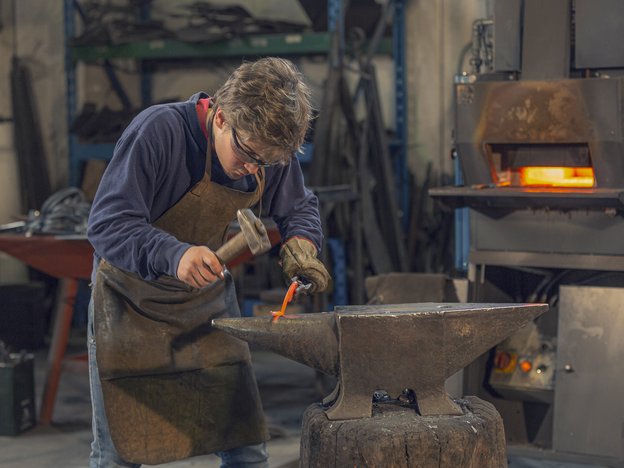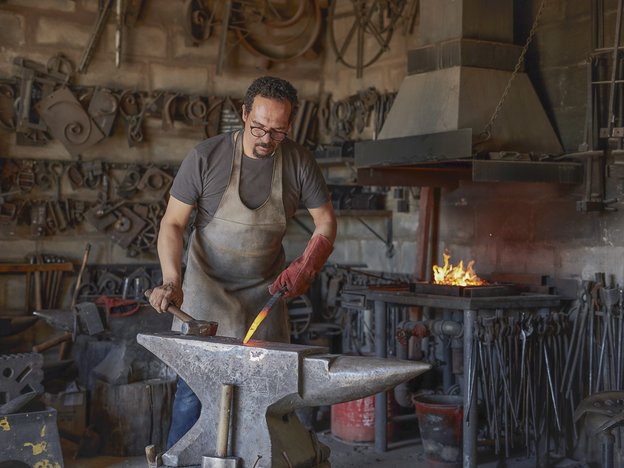Forge operator, Kaiwhakamahi mīhini pēhi-tārai
Also known as
- Blacksmith, farrier, spring maker, spring and wire maker, plastics worker, forging press operator, hammer operator
Forge operators use forging and plastic-forming machines to shape or form metal or plastic parts and products.

Your pay could be
$48K
Lower
$64K to $95K
Most common
$122K
Upper
How does this pay compare?
Pay is before tax

Forge operators
- usually work shifts, including evenings and weekends
- usually work in workshops and may travel locally
- may work in hot, noisy and dirty conditions
- may do physically demanding work
- need to be methodical, accurate and safety conscious
Tasks
- study blueprints or other instructions to determine equipment setup requirements
- manoeuvre workpieces in equipment during production
- measure dimensions of completed products or workpieces to verify conformance to specifications
- operate metal or plastic forming equipment
- operate cutting equipment
- mount attachments or tools onto production equipment
- remove accessories, tools, or other parts from equipment
- conduct test runs of production equipment
- exchange information with colleagues
- trim excess material from workpieces
Practical
Organised
Investigative
Interests that fit this job
Interest quiz,
Kairoro Whakaritea
Do the Interest quiz to find out how well your interests fit with this job.
Do the quizYou usually learn on the job to become a forge operator and experience and a qualification may be useful.
You may need
- experience in similar work
- a New Zealand Certificate in Mechanical Engineering (Trade) (Level 4)
- a New Zealand Certificate in Plastics Engineering (Level 4)
- to do an apprenticeship and get a Certificate in Farriery Practice (CFP)
If you’re in school
You usually don't need specfic NCEA levels for this job, but Level 2 may be useful.
Loading job ads
Other career ideas in Metal and plasticsĒtahi atu huatau aramahi i Konganuku me te kirihou,
Showing career ideas 1-6 of 16